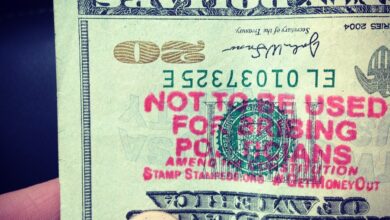The Curious Inability To Spend Money On Yourself

Recently, I hit a major milestone in my journey to overcome what I like to call “frugality disease.” I spent $160 for an hour of private lessons for my two kids. In the past, I would’ve never paid such an amount. I’ve always been the type to teach them things myself, like swimming and bicycling.
But after seeing how much my kids enjoyed their parkour group lessons, I decided this was one of the best ways to decumulate wealth. Nothing makes me happier than seeing my kids happy—nothing. Plus, group lessons are hard to come by on weekends and I don’t have the equipment.
After the private lesson, I didn’t feel too much of the usual agony of “losing” $160. I know they won’t become college athletes with scholarships, let alone go pro, but the joy they experienced was worth it. Still, I couldn’t help but think about how much fresh crab and lobster $160 could buy—at least three pounds worth!
Despite this small victory in spending more money, I realized I still couldn’t bring myself to spend on myself. And that’s where the struggle continues. Maybe you struggle with the same problem too.
I’ve long believed that pain and discipline are necessary to achieve your goals. Being handed things on a silver platter often stifles growth. The lack of appreciation comes from not earning what you have.
Adopting a “broke mindset” can help you get rich, and feeling hunger—both literally and figuratively—keeps you driven. Whether it’s maintaining your weight by remembering the less fortunate or grinding away at a side hustle to escape a bad job, sacrifices are necessary for progress.
So when it comes to spending money on myself, it feels like betraying the sacrifices I’ve made to achieve financial independence since 1999. I’ve been saving and investing for so long that buying things I don’t need feels completely off.
Let me give you an example.
A New Jacket with Zipper Pockets
I wear the same type of clothes every day—track pants, sneakers, a t-shirt, and an exercise jacket with zip pockets. It’s basically athleisure wear. Since I don’t go to an office or meet clients anymore, comfort is king.
However, now that I attend my kids’ school functions and birthday parties almost weekly, I’ve started to notice something: the stains on my clothes are piling up, even after washing. I don’t want to look too schlubby in front of my peers, at least for the sake of not embarrassing my kids who don’t care one bit.
Earlier this year, instead of buying a new jacket for $110, I took my four-year-old one to the tailor to fix the zipper for $25. Saving $90 felt great! But five months later, the jacket is frayed, and I wanted to buy a new one.
Hoping for a sale, I went on the Nike website and found something similar. But when I saw there was no discount, I didn’t pull the trigger.
Tennis Shoes with Holes
While I was on the site, I also noticed my tennis/pickleball shoes had developed not one, but two holes in the front soles! These shoes were only three months old and had been gifted to me by a pickleball buddy who ordered the wrong size.

I typically spend $140–$160 on tennis shoes that last around six months. So while shopping for the jacket, I started browsing for new shoes too. But when I was about to check out, I froze.
Even though I had recently spent $160 on private lessons for my kids, I couldn’t bring myself to spend $110 on a jacket or $160 on new shoes for me. What’s going on?
The Solution to Spending More on Yourself
Two weeks after not buying the jacket, I decided enough was enough. My frugality disease had resurfaced to the detriment of my health and happiness. The stock market had recovered from its latest correction and the Fed was about to embark on its multi-year interest rate cut cycle.
But instead of buying it myself, I asked my wife to buy it for me! This way, I could sidestep the guilt of buying something I didn’t really need. Sure, I wanted to look more presentable at school events, but I didn’t need a new jacket.
That’s the solution: if you struggle to spend money on yourself, ask your significant other or close friend to do it for you. Having a gatekeeper adds a layer of accountability, and you avoid the personal pain of spending.
You’ve already tricked yourself into viewing investments as expenses to get yourself investing more. Now, remove yourself from the spending process altogether!
That said, I still haven’t been able to buy new tennis shoes. Why? Because I have a pair of vintage Agassi tennis shoes sitting in my closet. They’re new, but I see them as collectibles and can’t bring myself to wear them. They bring back happy memories from middle school.

Things to Tell Yourself to Spend More
For those who’ve been frugal for decades, changing spending habits can feel impossible. The opportunity cost of not investing that money can loom large. Or you might simply convince yourself you don’t need it, which is easy to do once you have your basic needs met.
But if you have the money and are already providing for your loved ones, you should be able to splurge on yourself occasionally. Here are a few things to tell yourself help you feel better about spending:
- I successfully provide for my family – If you prioritize your family, you should feel free to enjoy what’s left on yourself. Providing for your family is like paying yourself first. The rest should be guilt-free.
- I work hard for my money – If you’re putting in long hours, you deserve to treat yourself. What’s the point of working hard if you never enjoy the fruits of your labor?
- I’ve worked a long time for my money – In your 20s and 30s, frugality is wise to help you build passive income. But if you’ve worked for 20 years, continuing to deprive yourself is unhealthy.
- I will die with too much money if I don’t spend more – If you die with too much money left, it means you didn’t fully enjoy the wealth you built. You’ll have wasted your healthiest years for little reward.
- I am only buying things that I truly value – If you’re spending money on things that genuinely improve your quality of life, then that spending is well worth it. Stop thinking that any money you spend goes to zero—it doesn’t. Instead, you’ll gain a greater return in the form of enhanced well-being and happiness.
- I give money to help others – If you’re donating money regularly, you’re a thoughtful person. And thoughtful people deserve to be rewarded once in a while.
- I diligently track my finances – If you know where your money is going every day, you’ll realize that any spending you do is within your means. There’s no need to feel guilty about spending on something that won’t negatively impact your financial situation.
- I save and invest religiously – If you’re saving well above the median savings rate of ~5% and investing the majority of your money, you’re already doing better than the average person. It’s okay to live a little and enjoy the fruits of your discipline!
Still Not Spending Money on New Shoes
Even after telling myself it’s okay to spend, I still haven’t bought new tennis shoes. Instead, I’m making do with what I have. Retirement and simplicity go hand in hand, and having fewer things brings me more peace.
For now, I’m content with enjoying my new stain-free athletic jacket, which cost me $110. If my new investment in Nike stock grows 10 times the cost of a new pair of shoes—$1,600—then maybe I’ll use the profits to finally buy them. This is my 10X Consumption Rule: I only spend on unnecessary items if the corresponding investment grows 10 times its cost.
But there’s another challenge that might be the root cause of my reluctance to spend on myself. After buying a new home in 2023 that we didn’t need, I already feel enough financial guilt not to get something else I don’t need. It took a lot to convince my wife to move. Further, it’s still too soon to tell whether moving was the right decision.
As a result, I’m cautious with my spending. While I know spending $160 on new shoes won’t break the bank, it’s just not necessary. My focus is on regaining financial independence by December 31, 2029, and nothing will derail me from that goal.
Reader Questions And Suggestion
Do you have a hard time spending money on yourself but no problem spending on your kids or loved ones? Why do you think that is? What strategies have you used to loosen up your spending on yourself?
To expedite your journey to financial freedom, join over 60,000 others and subscribe to the free Financial Samurai newsletter. Financial Samurai is among the largest independently-owned personal finance websites, established in 2009.




